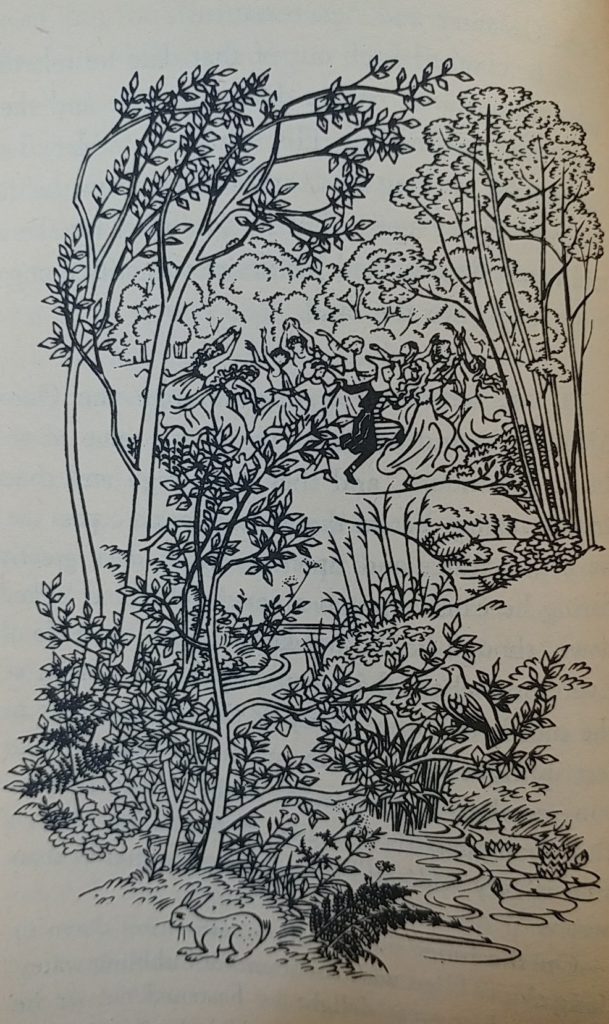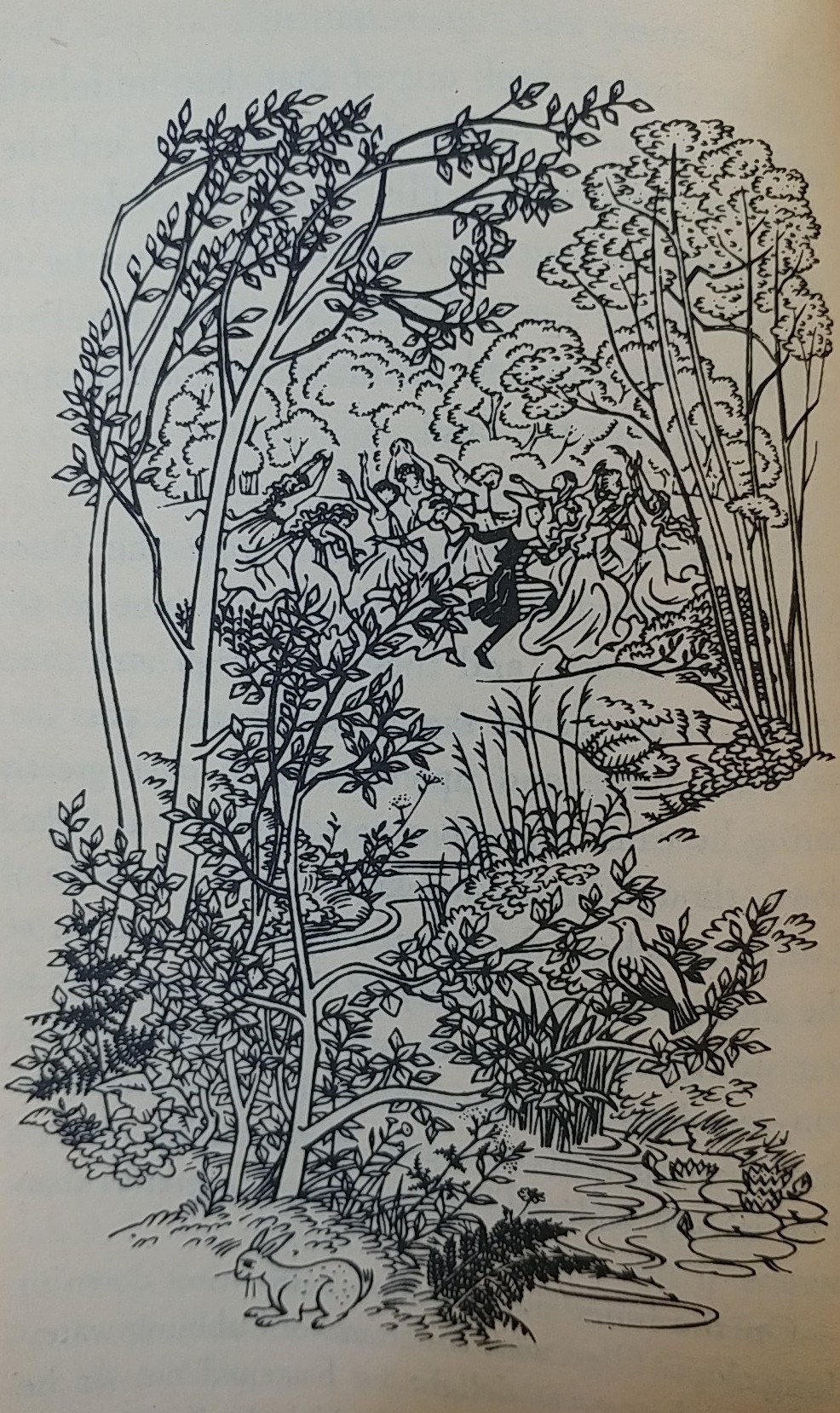This will (hopefully) be an unusually short post from me, since it’s less a post in its own right, more a postscript to my discussion of Elves in The Hobbit and how their portrayal in that book can help us in understanding their nature.
One source that I neglected to look through in preparing that post, though, was Smith of Wootton Major, a terrible and critical error – not least because, of all Tolkien’s stories, it may well be my very favourite. And yes, I do include The Lord of the Rings in that claim. Smith is an incredible short story, and the only reason I haven’t really written about it thus far is that I cannot think of anything to say or to add to it. Even now, this post isn’t really about Smith at all, rather, about a curious detail in it that I only noticed thanks to an excellent class by Corey Olsen on the work.
Smith, of course, is not really part of Middle-earth, and the Faery-folk of Smith are not necessarily Elves. That being said, though, they are also absolutely Elves, and Smith is every bit as relevant to understanding Tolkien’s conceptions of Faerie and of Elf-home as any other of his writings (and if you don’t believe that, then ask the King of Faerie, who is literally called Alf – or go reread On Fairy Stories, where ‘elf’ and ‘faerie’ seem synonymous to the point of being identical in Tolkien’s usage).
During Smith’s wanderings in the lands of Faery, he comes to the Vale of Evermorn, and there meets with Faery-folk dancing and marvels at their grace and speed. He is hailed by a young and beautiful maiden (who is, unbeknownst to the mortal wanderer, herself the Queen of Faery).
She laughed as she spoke to him, saying, ‘You are becoming bold, Starbrow, are you not? Have you no fear what the Queen might say, if she knew of this? Unless you have her leave.’ He was abashed, for he became aware of his own thought and knew that she read it: that the star on his forehead was a passport to go wherever he wished; and now he knew that it was not. But she smiled as she spoke again: ‘Come! Now that you are here you shall dance with me’; and she took his hand and led him into the ring.
There they danced together, and for a while he knew what it was to have the swiftness and the power and the joy to accompany her. For a while. But soon as it seemed they halted again, and she stooped and took up a white flower from before her feet, and she set it in his hair.
Smith of Wootton Major by J.R.R. Tolkien

In Olsen’s reading of the text, this is a significant passage – it is at this moment that Smith first becomes aware that the star is an allowance, and not more, that it grants him no special command or grace. Yet even as he realises this, the Queen herself grants him the privilege of dancing with her and her consort. It is a rebuke, yet gentle and accompanied with a gift. And, Olsen says, there is something notable in Smith’s knowing “what it was to have the swiftness and the power and the joy to accompany her.” Implicit in that statement is that Smith could not normally have been capable of dancing this dance, that it is a grace granted to him by the Queen to partake in it for a little while. Smith usually was not so swift, nor so powerful, as to be able to dance as one of the Faery.
But, crucially, Olsen points out that Smith’s joy is also elevated beyond its normal capacity during this experience. Not by the experience, either. Rather, that just as Smith was not swift nor powerful enough by nature to dance with the Elves, so too was his spirit not possessed of sufficient joy. And this is not a critique of Smith, he is a traveller and a singer and a maker of beautiful things, there is no hint that he is a meanspirited or ill-willed person. But even Smith does not possess a Faery joy, a full and uncompromised and focused joy. And again, therefore, the implication is that Elves do possess such a joy.
It’s ultimately nothing more than an extra footnote in my argument concerning the nature and the will of Tolkien’s elves, but I do think it is a worthwhile extra piece of evidence to consider. It is notable because it is a clear and direct statement by Tolkien that this elvish joy (and, arguably, any elvish sensation) is less wavering and more elevated than ours. And it is also notable because Tolkien is equating this joy with the natural and physical qualities of speed and power that the Elves also possess. Just as the Elves are possessed of greater physical command and surety than we are, so too are they more certain in their thought and mind and passions, in a real and tangible manner – so real and tangible that it requires a special act of grace for mortal Man to even taste of it for a spell.
~~~~~~~~~~~~~
Thanks for reading – feel free to check out anything else you may be interested in on the blog, there’s plenty more to discover! Follow me on Facebook and on Twitter to stay up to date with The Blog of Mazarbul, and if you want to join in the discussion, write a comment below or send an email. Finally, if you really enjoyed the post above, you can support the blog via Paypal, and keep The Blog of Mazarbul running. Thanks for reading, and may your beards never grow thin!
